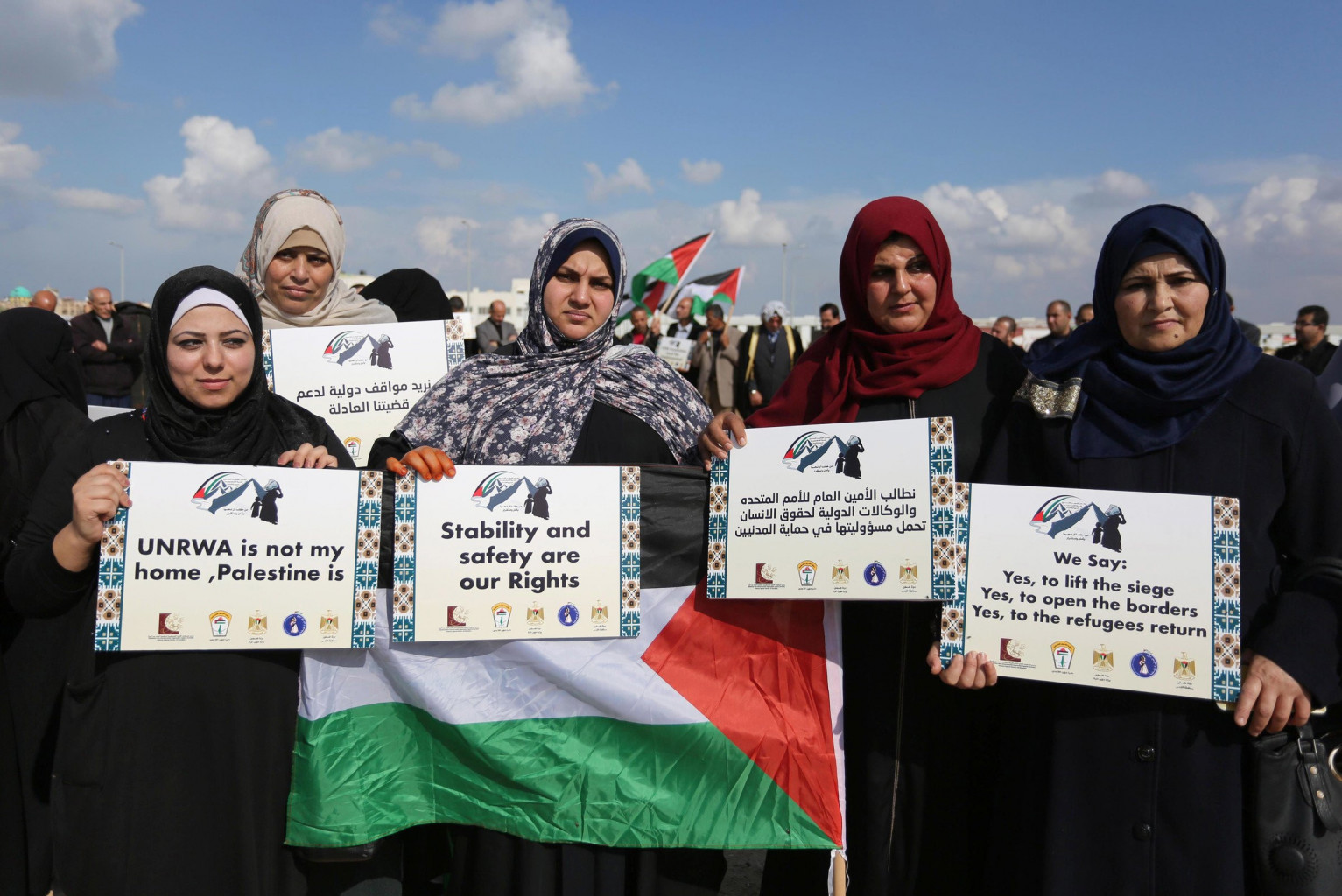This post is also available in: Français (French) العربية (Arabic)
By Dalal Hajj Yassine
Women’s political representation in Palestine
Palestinian women have played a prominent role in the liberation struggle of their country since the British occupation of 1917 until this current day, with their daily confrontations with the Israeli occupation. Women’s active participation in all facets of the national struggle was not met with their fair representation in political life and decision-making processes.
Even worse, in return for their heroic role and their partnership with men in all areas of the liberation struggle, women are 'rewarded' with a worrying quality of life and rights situation. This is primarily represented in their prolonged suffering from structural types of violence, in both the public and private arenas, and which can be summarized as follows:
First, women suffer from the Israeli occupation, which has exercised its violence against people since the Nakba of 1948 until this day in different forms of murder, detention, targeting, and violation of their most basic rights to housing, shelter, freedom of movement, and their denial of access to health services, education and social security, among other rights. This reality has left an enormous social, economic and psychological impact on Palestinian women, on their safety, wellbeing and stability. Moreover, Palestinian women have to deal with the consequences of the killing, injury or imprisonment of family members, events that usually turn them into the sole breadwinners of their households. Their fragile situation is exacerbated by the confiscation of their land and sources of livelihoods and the demolition of their houses. Not only do they lose their right to a dignified life, shelter, safety and stability, but the financial and psychological burdens on them increase as they find themselves responsible for providing care for their families and communities, on their own sometimes.
Secondly, private and societal violence is manifested by the continued suffering of Palestinian women from direct societal and domestic violence originating from the cultural patriarchal legacy that bases itself on flagrant discrimination against women and girls in various aspects of family and social life. This discrimination manifests itself in laws and bylaws that are currently in effect in Palestine. Despite the introduction of a number of amendments to these laws, rates of violence against women remain very high and have even been on the rise in the past couple of years, especially since the Covid-19 pandemic.
The feminist movement in Palestine
Feminist organizations in Palestine have existed under different names, like women’s centers and women’s unions, in addition to what is known as the Ministry of Women’s Affairs, which exercises a supervisory role over women’s institutions. Female activists in Palestine work on developing the role of Palestinian women and strengthening their rights and protection from violence.
Their current priorities include: amending the personal status law in religious courts – especially with regards to issues of custody and the right to divorce and alimony – and the ratification of the “Family Violence Protection” draft law, and the protection of women from harassment and the social stigmas they endure.
Forms of discrimination against women
Palestinian women suffer from great challenges in getting full and equal rights in education, health and inheritance, as well as in their right to work, equal pay, and property and housing rights. Consequently, laws also deny them many rights related to marriage and its annulment. The State of Palestine’s vision on women’s political participation hinges strictly on their participation in the electoral process.
As for their economic participation and other forms of active involvement, Palestinian women are largely absent from many official and basic economic programs, and there is still a deficiency in measures that encourage the participation of women in the private sector and ownership of projects that serve to enable them from accessing resources necessary for continuity and growth. As in other countries in the region, until now, the value of women’s labour is not factored into the national income, especially in unseen or informal labour, and they are not afforded any real protection from exploitation and harassment at the workplace.
In the year 2020, amidst the COVID-19 pandemic, a big number of workers in industrial and commercial enterprises were either reduced or laid-off, leading to a decrease in the average income per capita and the loss of jobs for many workers. The shutdown significantly impacted women’s work in the informal sector, in home farming, home-based businesses, nurseries and pre-schools. The reality of this economic situation during the pandemic exacerbated the marginalization of women and further exposed them to the risk of poverty. Additionally, the shutdown of educational institutions further burdened Palestinian women and girls at home, as they are the family members usually expected to carry out household chores and be responsible for the unpaid care of all members of their families. This has been accompanied by a noticeable increase in patterns of domestic and family violence against women and girls during the pandemic, who in turn are not receiving the necessary protection from the state.































